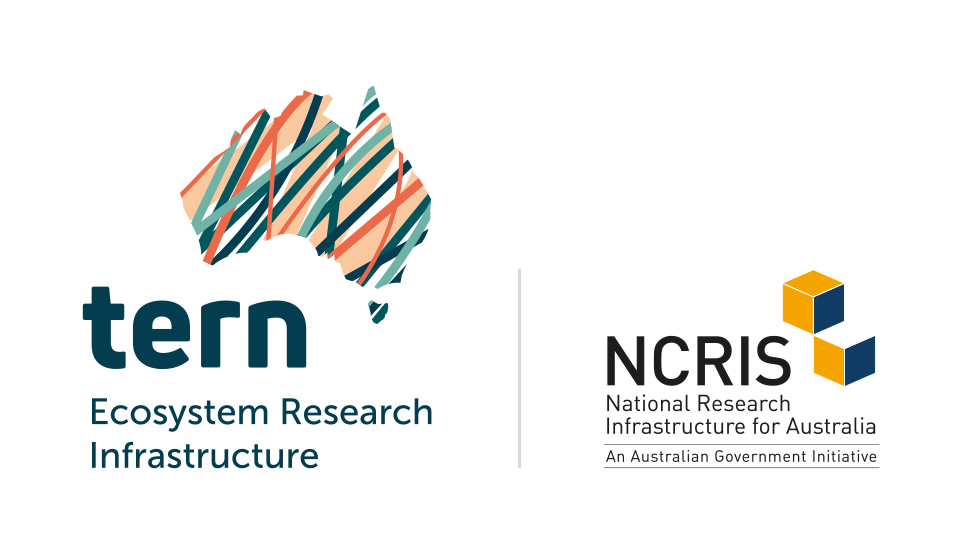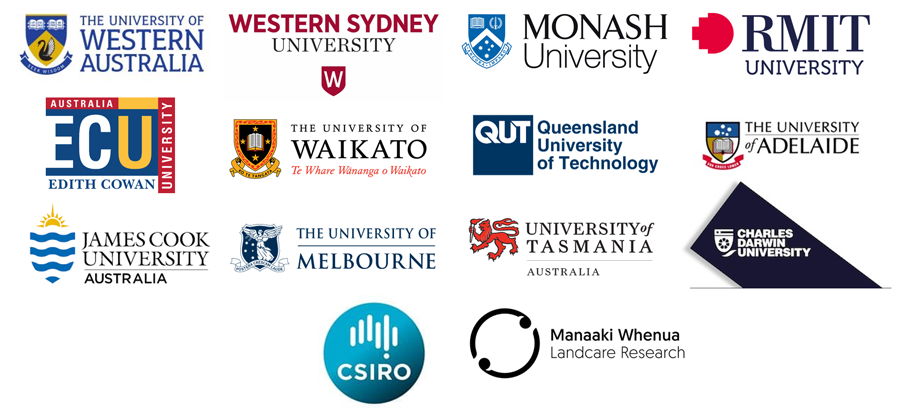
Overview
OzFlux is an international network of flux sites in Australia and New Zealand. OzFlux is a Community of Practice of the Terrestrial Ecosystem Research Network (TERN), funded in part under the National Collaborative Research Infrastructure Strategy (NCRIS).
The OzFlux network is administered by a team of researchers and the TERN Ecosystem Processes Central Node (EPCN). This team determines protocols for measurements, data processing and quality control, provides a database to archive data from each site, provides training to site operators as required, and helps coordinate scientific syntheses and publications. The EPCN manages the data and the data portal web site ![]() .
.
The Director is Prof Stefan Arndt (University of Melbourne), the Associate Director is Dr. Nina Hinko-Najera (the University of Melbourne), and the Data Manager is Dr. Peter Isaac.
A Steering Committee chaired by Prof Elise Pendall (Western Sydney University) provides scientific leadership for the network and coordinates logistics as required.
Steering Committee Roles and Terms
The OzFlux Steering Committee was re-established as a result of discussions at the OzFlux Conference at Calperum, July 2016, with further discussion at the first meeting of the Steering Committee on August 4 2016.
The aims of the Steering Committee are to facilitate communication among Principal Investigators (PIs) and with EPCN, increase collective decision-making and discussion, and share the management and operational load.
EPCN currently includes 6 part-time staff facilitating OzFlux operations on a national basis, including developing data processing protocols, guiding site data processing and management, web page updates and facilitating continuous and accurate datastreams from all OzFlux towers. The Directorate includes a Director and a Associate Director. The Director manages relationships with TERN Central, other TERN facilities, contracting, finances, general operations etc. The Associate Director is responsible for strategic science directions, external business, collaborations etc.
All PIs are invited to attend steering committee meetings, and a range of ‘observer’ attendees are encouraged to attend, including other TERN Facility leaders.
It was agreed the steering committee would comprise the following roles:
Chair – To help with the smooth running of meetings and decision making, supported by Directorate and Secretary in determining agenda and taking minutes.
Directorate representative – Director and/or Associate Director as below.
Secretary – Responsible for leading agenda preparation, taking and managing minutes, miscellaneous administration and correspondences, ensuring action items followed up.
Communications - OzFlux external – This includes three aspects:
- Joint role with TERN Ecosystem Processes to prepare joint newsletter, undertake operational contact with PIs on as needs basis, joint outreach, sponsors;
- OzFlux communications – external relationships and managing OzFlux publications list;
- Ad hoc member as local host for annual OzFlux conference and workshop.
Note – all PIs responsible for communications relevant to their own sites.
Ecosystem Processes Central Node representative – quarterly reporting and proposal for activities of Central Node staff in following months; communications relevant to datastreams - data discussions, FluxNet, NASA interactions, reporting and monitoring; polling of what people want from Central Node.
Collaborations and science links – coordinating and managing links with Australian and international collaborators and data users, e.g. FluxNet, AsiaFlux, CABLE, government departments, guiding OzFlux representation at relevant conferences.
Industry engagement – Outreach and engagement with industry including agriculture, water, Bureau of Meteorology, Department of the Environment, forestry, education and outreach, and tourism.
In 2022 two roles were formalised to help increase representation:
New Zealand representative – reporting of Kiwiflux activities, and keeping Kiwiflux members up to date with OzFlux activities.
Early Career Researcher representative - reporting of early career researcher activities, achievments and issues, encouragement of early career researcher participation and representation in OzFlux and the broader flux community.
Appointment of Steering Committee Roles
It was agreed that all Steering Committee (including Directorate) roles would be reviewed annually. A maximum three year term was recommended but this was not considered a rigid requirement. Where there are several nominees, roles can be appointed through a ballot of PIs and Central Node staff.
More early-career researchers are encouraged to take a role on the committee.
Current appointments as of 1 Jan 2024 are:
| Steering Committee Role | Appointee | Affiliation |
|---|---|---|
| Chair Deputy Chair |
Elise Pendall Sam Grover |
Western Sydney University Royal Melbourne Institute of Technology |
| Director | Stefan Arndt | University of Melbourne |
| Associate Director | Nina Hinko-Najera | University of Melbourne |
| Secretary | Mark Hovenden | University of Tasmania |
| External Communications | Caitlin Moore | University of Western Australia |
| Ecosystem Processes Central Node representative | Peter Isaac | James Cook University |
| Collaboration & science links | vacant | vacant |
| Industry engagement | Lindsay Hutley | Charles Darwin University |
| New Zealand representative | Johannes Laubach | Manaaki Whenua — Landcare Research |
| Early career researcher representative | Charuni Kanchana Jayasekara Mudiyanselage | Royal Melbourne Institute of Technology |
Data Policy
The OzFlux data files on this website are freely available and are furnished for use by the research community. Please kindly inform the site investigators of how you are using the data and of any publication plans.
If the principle investigator (PI) or members of their team feel that they should be acknowledged or offered participation as authors, they will let you know and we assume that an agreement on such matters will be reached before publication.
If your work directly competes with that of the PI's investigation team they may ask that they have the opportunity to submit a manuscript before you submit one that uses unpublished (preliminary) data.
Please acknowledge the data source (either the PI or the OzFlux Web Site) as a citation or in the acknowledgments if the data are not yet published.
In addition, when publishing, please acknowledge the agency that supported the flux tower research.
Lastly, we kindly request that those publishing papers using this OzFlux data please provide preprints to the scientists providing the data.
If you have any questions, please contact Prof Stefan Arndt (sarndt@unimelb.edu.au, ph: +61 3 9035 6819).
![]()


